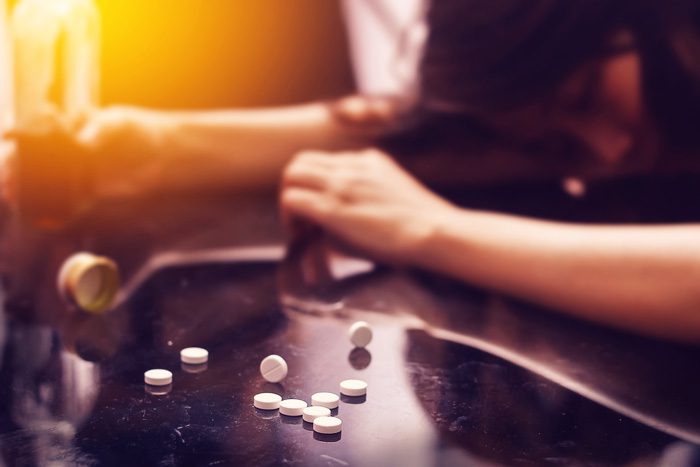 Many medications have warning labels on them.
Many medications have warning labels on them.
When you pick up a prescription at the pharmacy, do you pay close attention to the sticker on the bottle? Many people see the warnings saying, “Avoid alcohol while using this medication” but may not necessarily take the message seriously.
The situation is worse when the opioids are obtained on the street and don’t come with any warning labels. Users can’t be certain that the product they are buying is free of contaminants. Adding alcohol into a mix of illegal opioids can be even more dangerous than if you decided to mix prescription opioids and alcohol.
Effects of Mixing Opioids and Alcohol
• Drowsiness and Dizziness
Opioids can produce a feeling of euphoria in users; this class of drugs then produces a feeling of deep relaxation. When combined with alcohol, the effects of both substances are multiplied.
Someone who is feeling especially drowsy or dizzy after ingesting opioids and alcohol is putting herself at higher risk for injury from slipping and falling.
• Impaired Motor Skills
Along with feeling drowsy or dizzy, someone who has taken opioids and alcohol can also experience slower-than-usual reflex times. They will find it more difficult to react to potential threats, such as a car coming into their lane of traffic, than if they hadn’t ingested any drugs or alcohol.
The combination of opioids and alcohol can put a person at higher risk for being a victim of a crime. Someone who is in a state where their motor skills are impaired may not be able to evaluate potential threats and leave the situation before they can be targeted for a robbery, assault or sexual assault.
• Memory Loss
Opioid use can cause short- and long-term memory loss. Drugs in this class work by blocking the flow of pain signals in the central nervous system and numbing a patient’s emotional response to their pain. These actions are performed by chemical messengers that are also involved in cognitive function.
Heavy alcohol use can lead to short-term memory loss. Using opioids and alcohol together increases the likelihood of memory loss.
• Respiratory Depression
Alcohol and opioids are both considered to be depressants. In low doses, each one can potentially produce a feeling of relaxation and enjoyment. As a person continues to drink or ingest opioids in higher doses, the drug starts to work on his central nervous system.
When combined with alcohol, an opioid can cause breathing to become very shallow or even shut down altogether. This potentially fatal condition is called respiratory depression.
The elderly are especially vulnerable to respiratory depression from combining opioids and alcohol. People in this age group are more likely than younger people to experience episodes where they stop breathing when under the influence of opioids and alcohol. They are also more likely to have difficulty recovering if they stop breathing than a younger person.
OTC Medications and Alcohol
Some over the counter (OTC) medications contain alcohol. Cold medicines, cough syrups, sleep aids and some laxatives are in this category. If your loved one is also taking opioids, talk to a pharmacist about available options that don’t contain alcohol.
Substance Abuse: Opioids and Alcohol
If your loved one is abusing opioids and alcohol, the likelihood of an overdose is higher than if he has a substance abuse problem with only one drug. Every time he takes a drink and uses opioids he is running the risk of harming himself and others.
Professional treatment is needed in this situation. Great Oaks Recovery offers residential drug and alcohol treatment programs for clients living with addiction.


